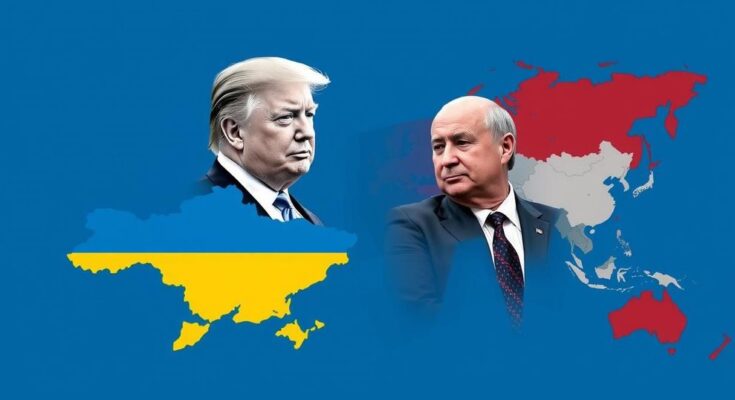Donald Trump’s anticipated presidency carries potential consequences for U.S. relations with China, Russia, and North Korea, particularly as he seeks to end the Ukraine war. Analysts caution that Trump’s favorable views of Putin and Kim might complicate his ability to engage with them effectively due to their close ties with China. The geopolitical landscape presents substantial challenges for Trump in executing his foreign policy agenda.
Donald Trump’s anticipated return to the White House is expected to significantly impact the geopolitical landscape surrounding China, Russia, and North Korea. As Trump positions himself to conclude the ongoing Ukraine conflict, his approach invites scrutiny due to the intertwined relationships among these three nations. Analysts observe that while Trump has exhibited a favorable disposition towards Russian President Vladimir Putin and North Korean leader Kim Jong-un, he may encounter substantial obstacles in fundamentally altering the dynamics between these countries and the West.
Recently, North Korea’s decision to deploy troops in support of Russia has intensified the complexities of the Ukraine crisis, which Trump has capitalized on during his 2024 electoral campaign. His assertive claims of being able to facilitate an end to the war within a single day bring forth questions regarding the feasibility of such actions, particularly in light of the historical alignment of interests among Russia, North Korea, and China in opposing Western influence.
Trump’s ideologies surrounding foreign policy rely heavily on transactional strategies, raising concerns that he might inadvertently strengthen the geopolitical bloc comprising China, Russia, and North Korea rather than isolate them. This intertwining of interests could hinder his plans to renegotiate relations and lead to unexpected challenges in his second term.
Since the onset of the Ukraine conflict, geopolitical tensions have escalated, particularly involving major global players such as Russia, China, and North Korea. Each of these countries has a vested interest in opposing Western policies, influencing their alliances and military strategies. Donald Trump, having previously served as President, has consistently emphasized a more conciliatory stance toward both Russia and North Korea, drawing potential implications for how he plans to reshape U.S. foreign policy upon his return to office. This context provides a backdrop against which Trump’s pledges to resolve conflicts must be assessed critically.
In conclusion, Donald Trump’s prospective administration is poised to navigate a challenging international landscape characterized by the strategic alignments of China, Russia, and North Korea. While his aggressive promises to conclude the Ukraine war resonate with certain electoral bases, the reality of such endeavors may prove complicated. The interconnectedness of these nations presents significant hurdles that could thwart Trump’s ambitions, despite his optimistic rhetoric regarding their leaders.
Original Source: www.scmp.com




